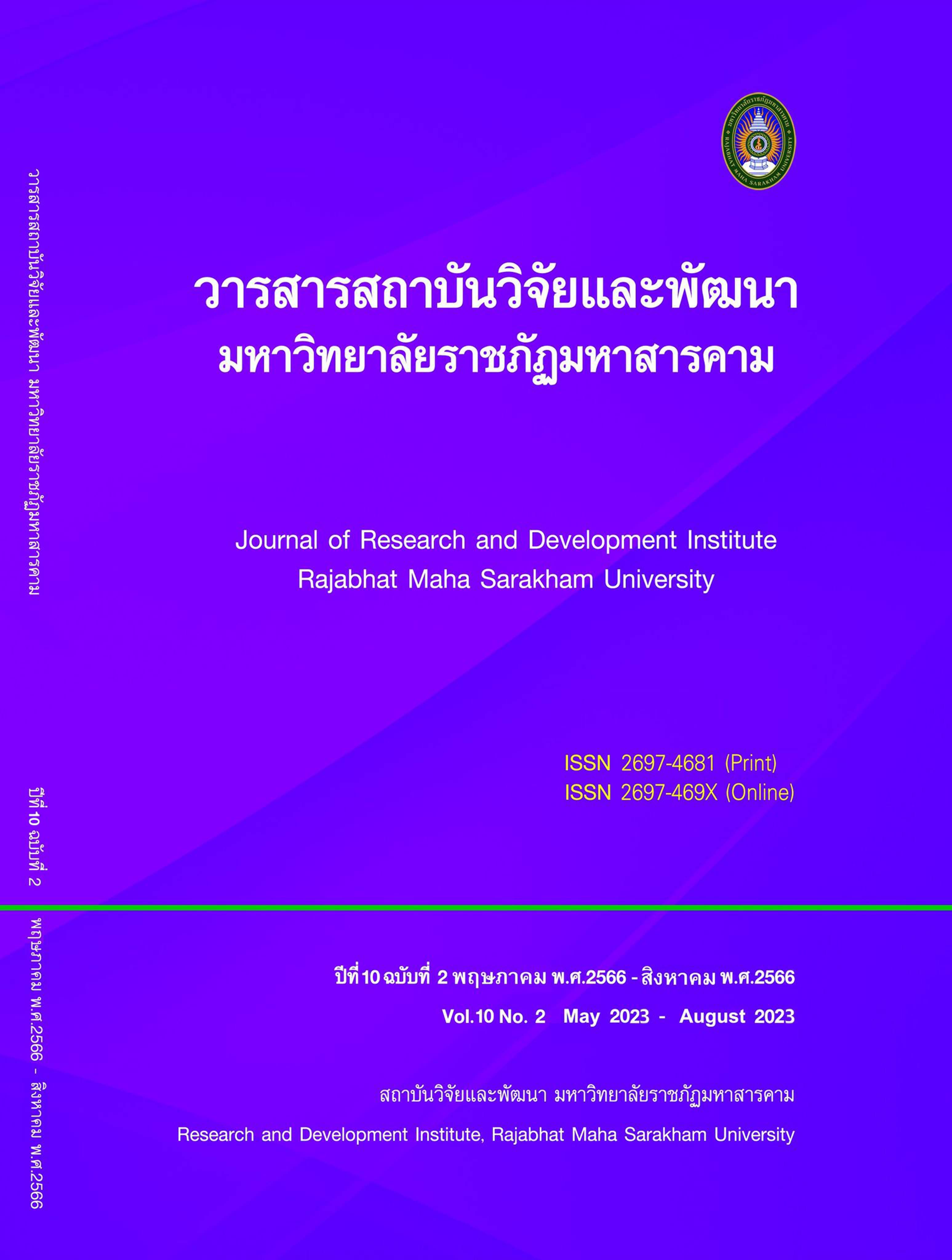The Guidelines for the Development of Transformative Leadership of School Administrators Under the Office of the Promotion of Non-formal Education and Informal Education
Abstract
The objectives of this research were 1) to study the current condition, desirable condition and priority needs index of transformative leadership of school administrators under the office of the promotion of non-formal education and informal education, 2) to study the guidelines for the development of transformative leadership of school administrators under the office of the promotion of non-formal education and informal education. The research is divided into 2 phases: Phase 1: study the current condition, desirable condition and priority needs index of transformative leadership of school administrators, the sample group consisted of 37 school administrators and 205 teachers. The research tool was a questionnaire. Index of item objective congruence 0.8 - 1.00, discrimination was 0.31 - 0.84 and the reliability of the whole paper was 0.94. Statistics The data used for data analysis were mean and standard deviation. Phase 1: study the guidelines for the development of transformative leadership of school administrators. The target group was 7 experts. The research tools were interview forms, data analysis by content analysis, assessment form, data analysis by means of averaging. and standard deviation
The research results found that
- The overall current condition is average overall at a high level. The overall desirable condition was at the highest mean level. The priority needs index rank from high to low level was 1) inspiration motivation 2) idealized influence 3) intellectual stimulation 4) individualized consideration
- Guidelines for the development of transformative leadership of school administrators consisted of 1) principles and reasons, 2) objectives, 3) expected results, 4) content, 5) development process, and 6) measurement and evaluation. and has the results of the suitability and feasibility assessment by the experts found that the suitability was at a high level and has the highest level of possibility
References
Bass,B.M. & Avolio, B.J. (1994). Improvement organizational effectiveness through transformational leadership. Thousand Oaks, CA: Sage.
Chongwisan, R. (2010). The results of the transformational leadership training of Kasetsart University student leaders. Bangkok: Srinakharinwirot University Prasanmit.
Krejcie, R. V. & Morgan, D. W. (1970). Determining Sample Size for Research Activities. Educational and Psychological Measurement, 30(3), p. 607-610.
Phaphaputra, C. (2017). Academic Leadership in Educational Institutions. Sakon Nakhon : Sakon Nakhon Rajabhat University.
Runcharoen, T. (2012). Professionalism in organizing and managing education in the era of educational reform. Bangkok: Millet.
Sirinimitkul, K. (2010). Development of quality control manual for company products. Genesis Associates Co., Ltd. Nonthaburi : Sukhothai Thammathirat Open University.
Sompraj, K. (2019). Leadership and Educational Institution Quality. Khon Kaen : Khon Kaen University.
Vongvanich, S. (2005). Needs Assessment Research. Bangkok: Chulalongkorn University Press.
Wangyaichim, Y. (2012). Development of a nature study manual for hiking routes in Khao Yai National Park. Bangkok : Mahidol University.
Downloads
Published
How to Cite
Issue
Section
License
Copyright (c) 2023 พัชรา คำสอนทา, กฤษกนก ดวงชาทม

This work is licensed under a Creative Commons Attribution-NonCommercial-NoDerivatives 4.0 International License.
Articles that are published are copyrighted by the authors of the articles







